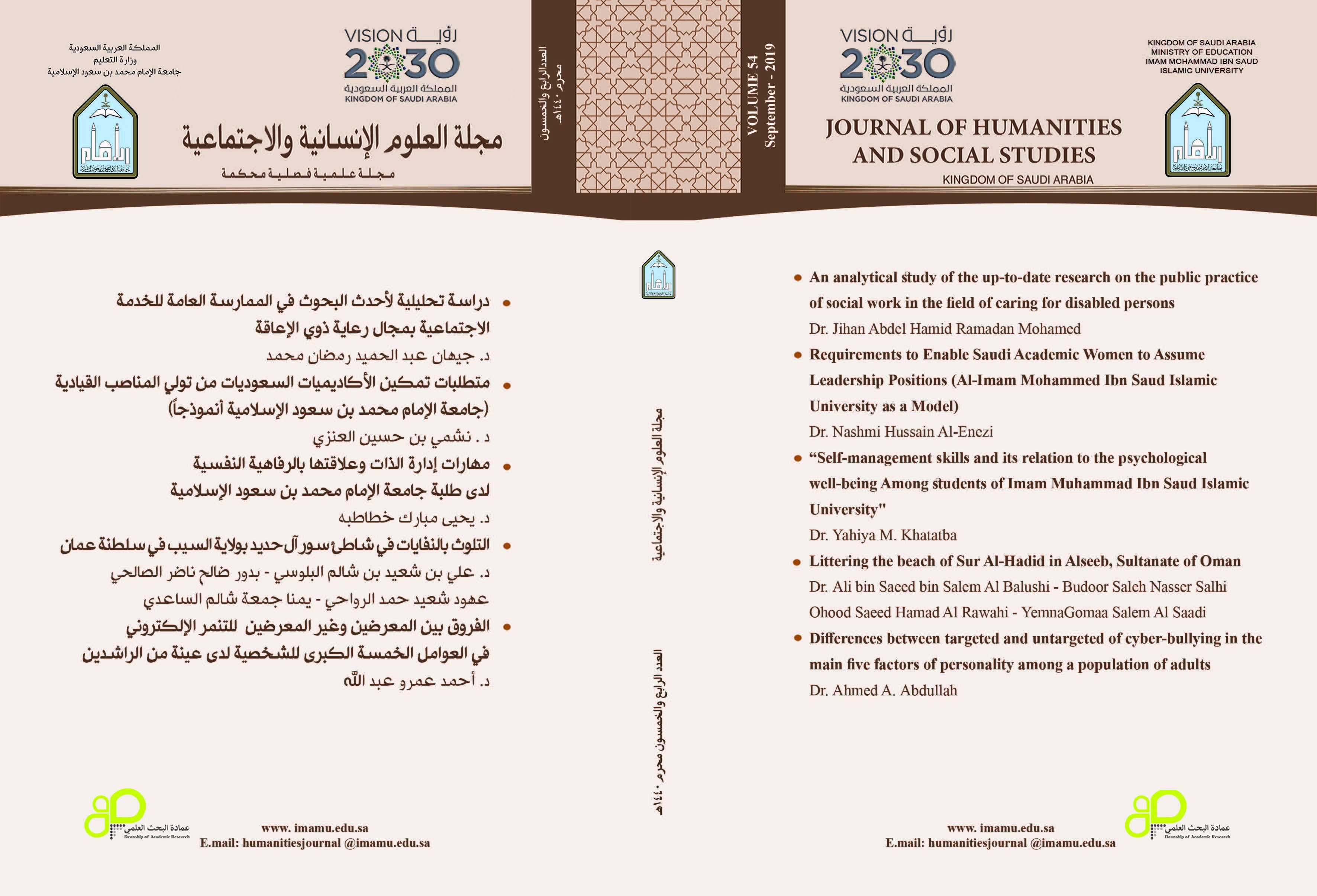“Self-management skills and its relation to the psychological well-being Among students of Imam Muhammad Ibn Saud Islamic University"
Keywords:
Self-management skills, the psychological well-being, students of Imam Muhammad Ibn Saud Islamic UniversityAbstract
This study aims at investigating self-management skills and its relation to the psychological well-being Among students of Imam Muhammad Ibn Saud Islamic University. The sample of the study consists of (588) female and male students. Participants responses were collected using the scale of self-management skills prepared by Mansour, Abdel Moneim and Rayyan (2015) and the psychological well-being scale prepared by Shand Wahiba and Salameh Abdel Hamid (2013).
The results of the study indicated no statistically significant relationship between the total score of the self-management scale and the Psychological well-being scale, but there was a statistically significant relationship at the level of significance (sig=0.05) or less between some dimensions of the self-management skills scale (Self-regulation, time management, optimism, the management of social relations, the management of absenteeism, self-employment, self-motivation, the decision, self-control) and some dimensions of the Psychological well-being scale (the goal in life, self-acceptance, independence, positive relationships with others, personal maturity, environmental empowerment, and the overall measure of mental well-being).
The results showed that the mean and standard deviations of the self-management skills level were high, Optimism came the highest of these skills, while self-control was the lowest. The results showed that the average of the well-being scale was very high. The dimension of self-acceptance was the first with the highest average, the fifth dimension (personal maturity) was the second, while in the last position came the goal in life at the lowest average.
The results showed no statistically significant differences in self-management skills, well-being scale according to gender variable, especially some dimensions of the scale of Psychological well-being, which showed that the differences inclined to males compared to females, and it was not statistically significant according to the level of study or the economic level for most dimensions of the scale of self-management,(Second dimension time management, the fourth dimension social relations department, the fifth dimension , the management plan, the ninth dimension self-control, the overall degree of the scale. While difference statistically was found on the scale of Psychological well-being according to the level of education, economic level on some dimensions and degrees varying in terms of educational level and economic level of Participants of the study. Finally, the results of the study showed the possibility of predicting Psychological well-being through the dimensions of the self-management skills of the students of Imam Muhammad bin Saud Islamic University




